Gas vs Electric Water Heaters: Which is a Good Choice for Rancho Cucamonga Home?
When it comes to water heater replacement in Rancho Cucamonga, homeowners often have to choose between a gas or electric water heater. Understanding the differences between the two options is crucial in making an informed decision. In this article, we will analyze the pros and cons of gas and electric water heaters, considering factors such as energy efficiency and upfront costs. By comparing these aspects, homeowners can select the best option that suits their needs.

How do electric water heaters work?
Electric water heaters work by using electricity to heat up the water stored in the tank. Inside the water heater, there are one or two heating elements made of metal. When the water temperature drops below the desired level, the thermostat in the water heater sends a signal to the heating elements, which then start to heat up. As the heating elements warm up, they transfer the heat to the water in the tank. The heat causes the water to become hot, which then rises to the top of the tank. At the same time, cold water from the bottom of the tank flows in to replace the hot water that has been used. To maintain the desired temperature, the thermostat continually monitors the water temperature and signals the heating elements to turn on or off as needed. This ensures that the water in the tank remains at the set temperature for whenever it is needed.

What are the benefits of electric water heaters?
Electric water heaters offer numerous benefits for homeowners in Rancho Cucamonga seeking to replace their existing water heaters. Here are some advantages of choosing an electric water heater for your home:
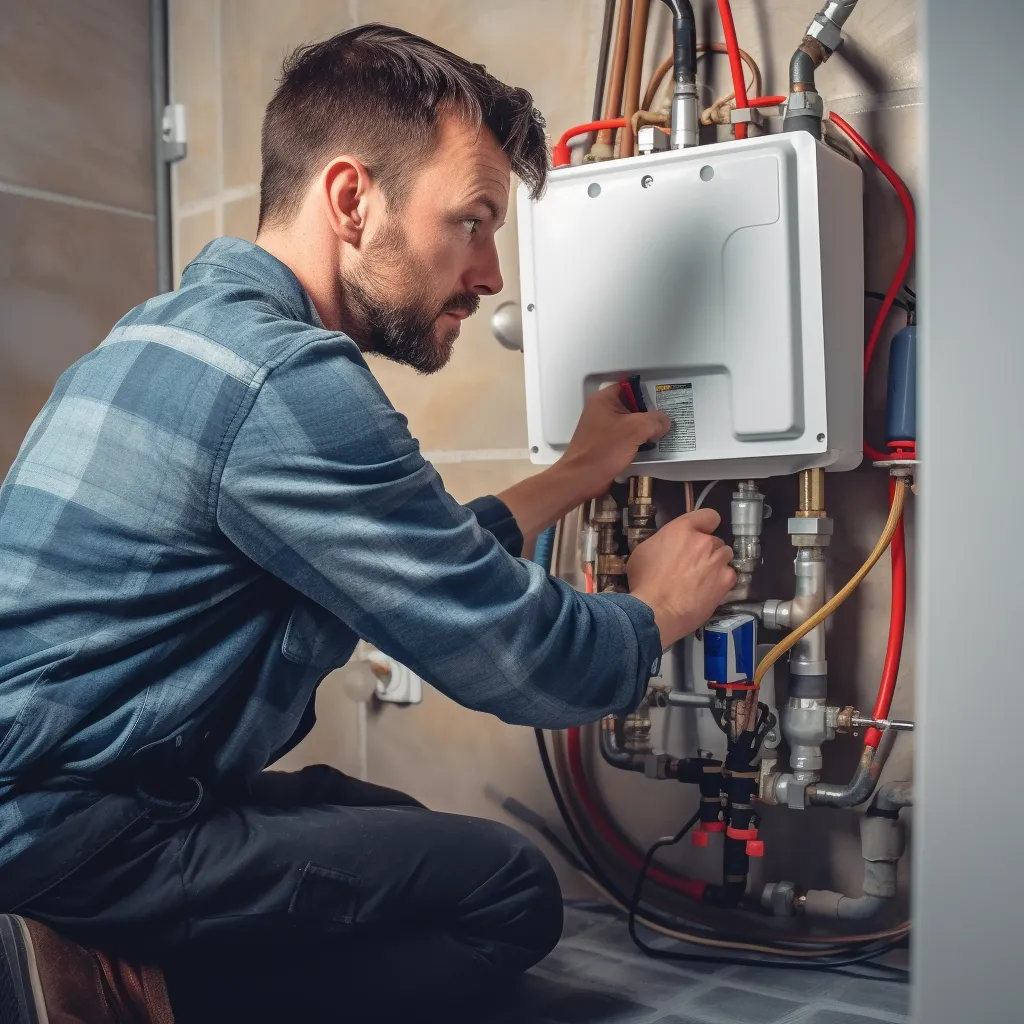
Energy efficiency: Electric water heaters are known for their high energy efficiency, helping homeowners reduce their utility bills. These units convert almost all the energy they consume into heat, ensuring minimal wastage and maximum cost savings.
Safety: Electric water heaters are designed with safety in mind. They do not utilize open flames or produce harmful emissions, making them a safer choice for homes. With no risk of gas leaks or carbon monoxide poisoning, electric water heaters provide peace of mind for homeowners and their families.
Easy installation: Installing an electric water heater is generally easier and less complicated compared to gas-powered units. Electrical connections are simpler, requiring minimal adjustments to existing plumbing systems. This ease of installation translates into reduced labor costs and less hassle for homeowners during the replacement process.
Compact and space-saving: Electric water heaters tend to have a more compact design, making them ideal for homes with limited space. These units can be installed in smaller areas, such as closets or utility rooms, without sacrificing functionality or performance.
Durability and longevity: Electric water heaters are often built to last and require minimal maintenance. With proper care and regular servicing, these units can provide reliable hot water for many years, reducing the need for frequent replacements.
Noise-free operation: Unlike some gas water heaters that can generate noise during operation, electric water heaters generally operate silently. This is especially beneficial for homeowners who prefer a peaceful and quiet environment in their homes.
What are the disadvantages of electric water heaters
Electric water heaters have several disadvantages:
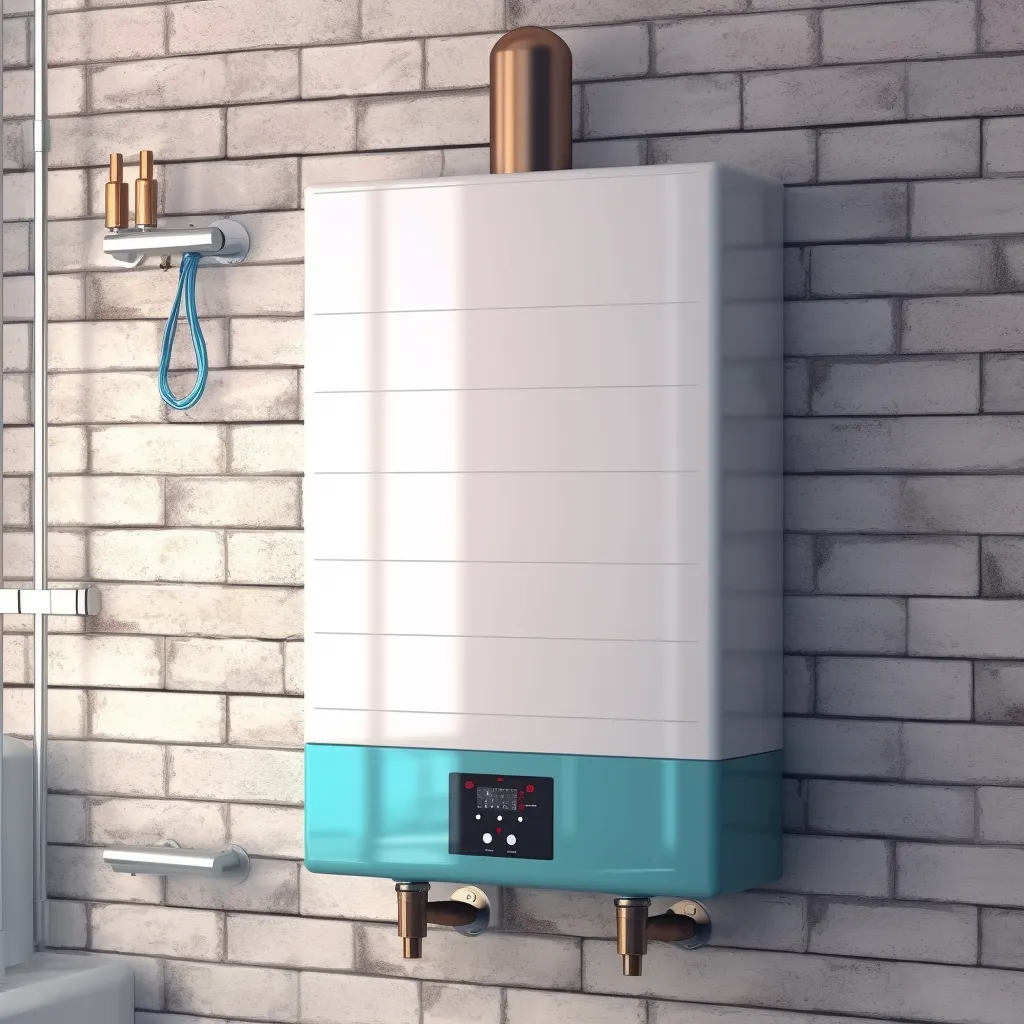
One of the main drawbacks is their high energy consumption. Electric water heaters tend to use more energy compared to other types of water heaters, such as gas or solar-powered ones. This can lead to higher utility bills and increased carbon emissions.
Another disadvantage is the limited hot water supply. Electric water heaters typically have a finite amount of hot water available at any given time. Once the hot water is depleted, users may need to wait for the heater to heat up more water, resulting in a delay before having access to hot water again.
Electric water heaters also take longer to heat water compared to other types. The heating element in electric water heaters works at a slower pace, which means it takes more time to achieve the desired hot water temperature. This longer wait time can be inconvenient, especially during peak usage times.
Electric water heaters can be more prone to damage and repairs. The heating elements in these heaters are susceptible to wearing out or malfunctioning, requiring replacement or repair. This can result in additional costs and inconvenience for homeowners.
Electric water heaters may struggle to meet the needs of larger households. If multiple people need to use hot water simultaneously, an electric water heater may struggle to keep up with the demand. This can lead to inconsistent water temperature and potential inconvenience for users.
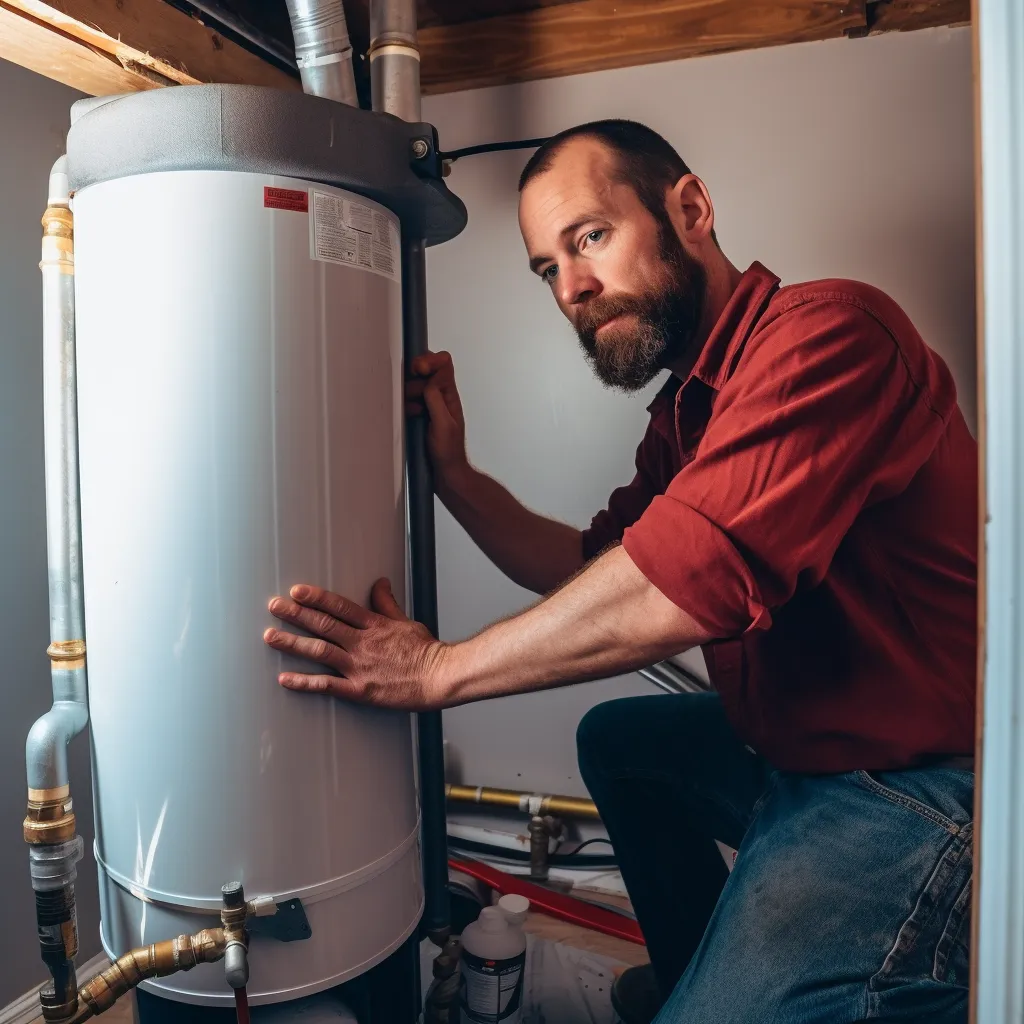
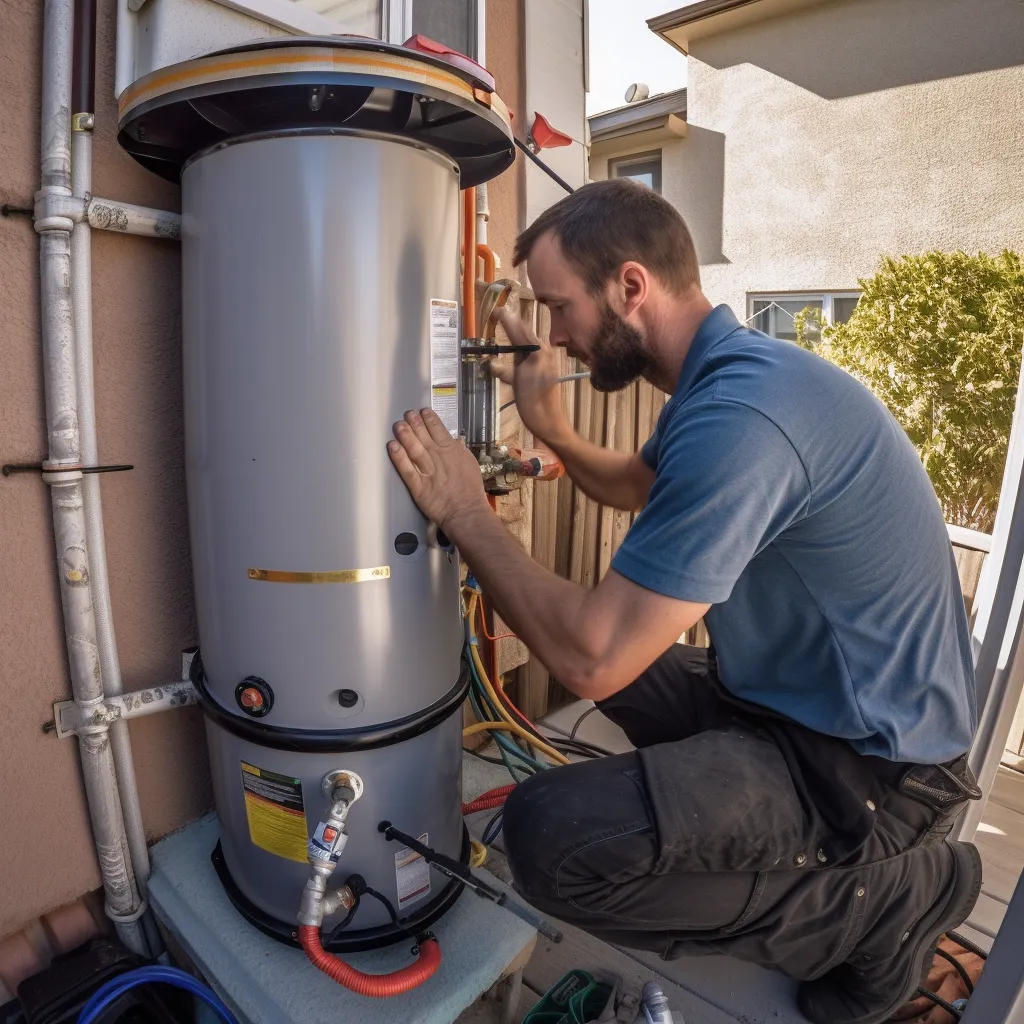
How do gas water heaters work?
Gas water heaters work by using natural gas or propane to heat water. The basic mechanism involves a burner that ignites the gas and heats up a metal tank or cylinder containing water. As the gas burner fires up, it heats the bottom of the tank, causing the water inside to heat up as well. The hot water then rises to the top of the tank, where it is stored until it is needed. When a hot water tap is turned on in a home, cold water enters the tank at the bottom, displacing the hot water. This cold water is then heated by the gas burner, and the cycle continues. Gas water heaters typically have a thermostat control that allows users to set the desired temperature of the hot water. Once the water reaches that temperature, the burner automatically shuts off to conserve energy. It is important to ensure that gas water heaters are properly vented to safely remove combustion byproducts, such as carbon monoxide, from the home. This is typically done through a flue or chimney connected to the water heater.
Pros of gas water heaters
Gas water heaters have several advantages when it comes to choosing a water heater replacement in Rancho Cucamonga. Here are some of the pros of gas water heaters:
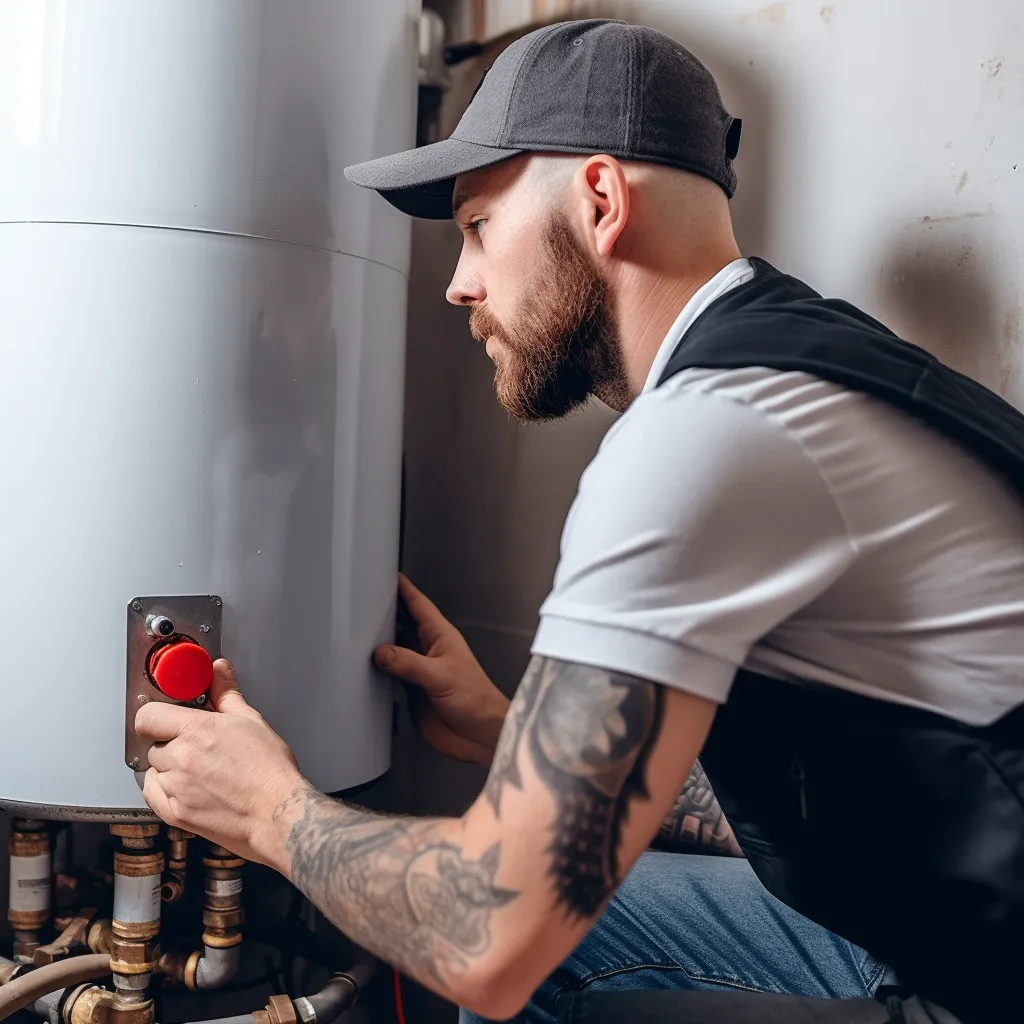
High Efficiency: Gas water heaters are known for their high energy efficiency. They use a natural gas burner to heat the water, resulting in faster and more efficient heating compared to electric water heaters. This can help reduce the amount of energy consumed and, consequently, lower energy bills.
Faster Recovery Rate: Gas water heaters typically have a faster recovery rate compared to electric models. This means that they can heat the water more quickly, ensuring a continuous and uninterrupted supply of hot water in a shorter amount of time. This is especially beneficial for larger households or during peak usage times.
Lower Operating Costs: Gas prices tend to be more stable compared to electricity rates, making gas water heaters a cost-effective option in the long run. Additionally, the efficient heating process of gas water heaters reduces energy wastage, resulting in lower operating costs over time.
Reliable Performance: Gas water heaters are known for their durability and reliability. They can provide a consistently high level of hot water without experiencing performance issues frequently. This makes them a dependable option for meeting the hot water needs of a household.
Versatility: Gas water heaters come in a variety of sizes and capacities, making them suitable for different household sizes and hot water demands. Whether you have a small apartment or a large family home, there is a gas water heater that can meet your specific requirements.
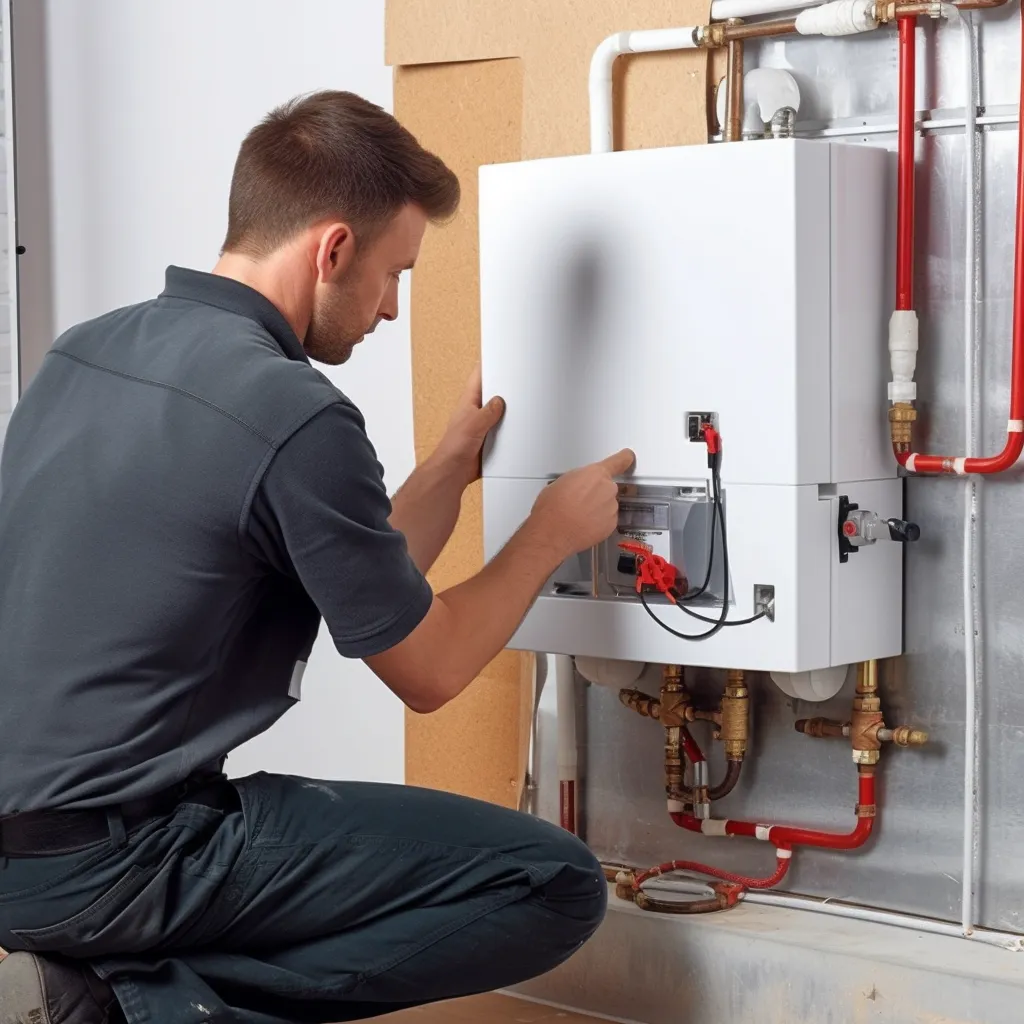
Cons of gas water heaters
When it comes to gas water heaters, there are a few cons that homeowners should be aware of before considering a replacement.
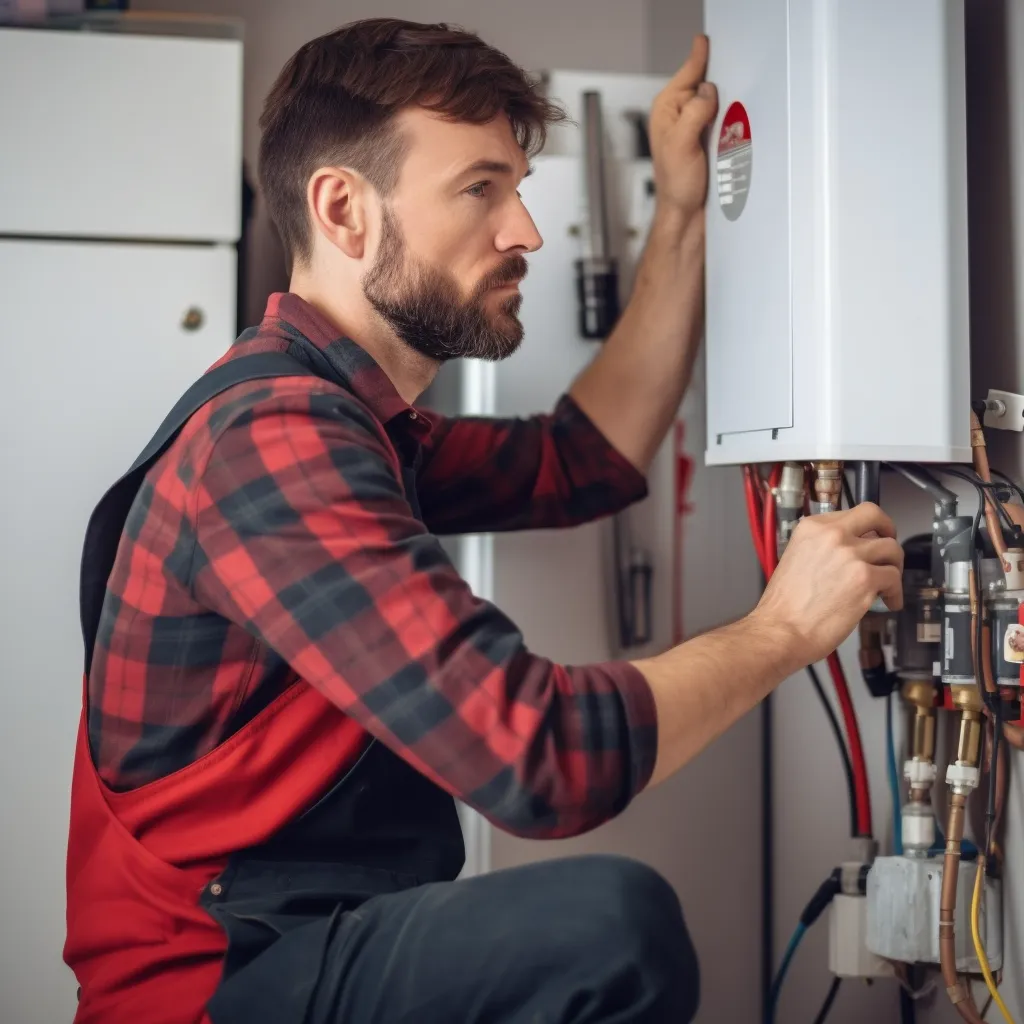
Gas water heaters tend to be more expensive upfront compared to their electric counterparts. The cost of purchasing and installing a gas water heater can be significantly higher due to the need for additional gas lines and proper venting systems.
In addition to the initial cost, gas water heaters can also be more expensive to operate in the long run. Natural gas prices can fluctuate, and depending on the area, gas rates may be higher than electricity rates. This means that homeowners may end up paying more for their monthly gas bills when using a gas water heater.
Another disadvantage of gas water heaters is their potential environmental impact. While natural gas is a cleaner-burning fuel compared to coal or oil, it still produces carbon dioxide emissions when burned. Electric water heaters, on the other hand, do not emit any greenhouse gases during operation.
Gas water heaters require regular maintenance to ensure they are functioning safely and efficiently. This includes annual inspections, cleaning the burner assembly, and checking for gas leaks. Neglecting proper maintenance can lead to reduced efficiency, higher energy bills, and even safety hazards.
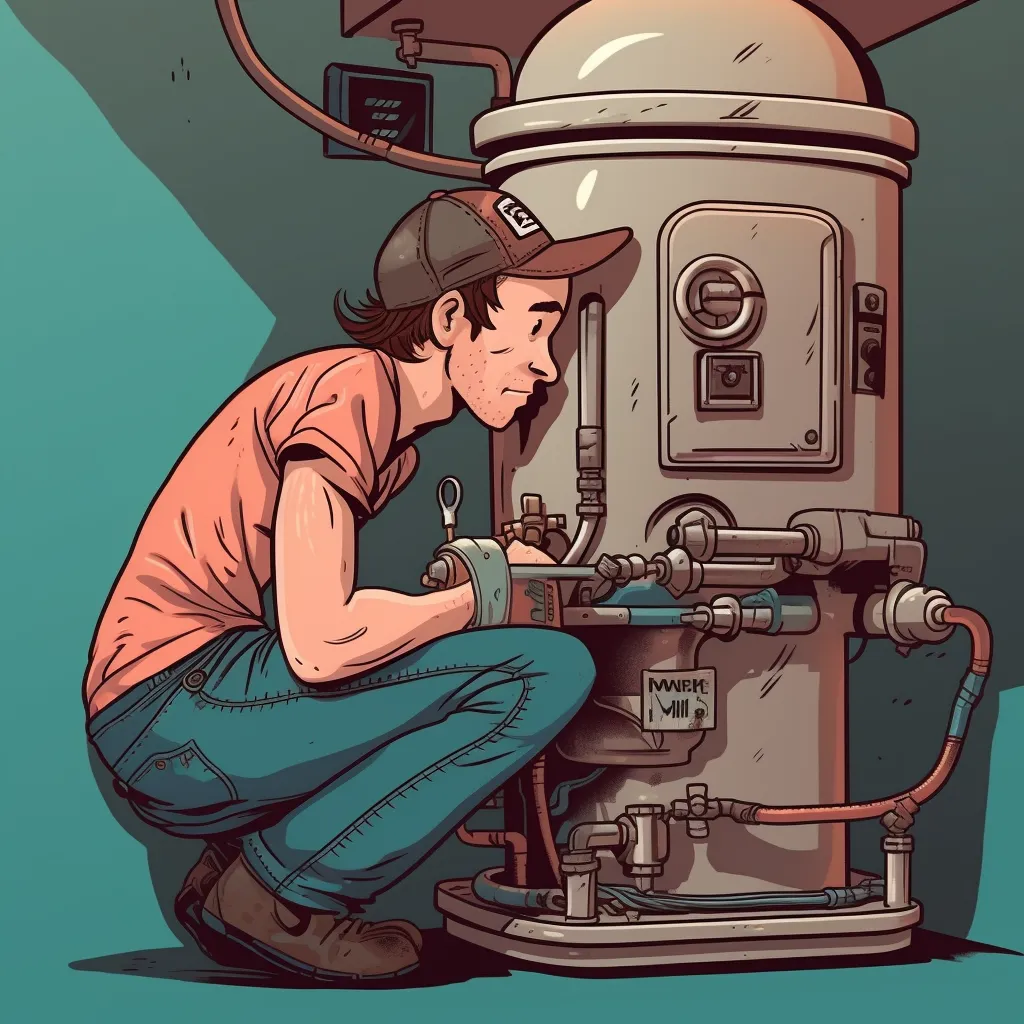
Are electric water heaters energy-efficient?
When it comes to energy efficiency, electric water heaters have made significant strides in recent years. Modern electric water heaters are equipped with advanced technologies that make them highly efficient. These improvements have led to reduced energy consumption and lower utility bills. One important innovation in electric water heaters is the use of insulation. Modern units are built with improved insulation materials, which helps to minimize heat loss. This means that less energy is required to maintain the desired water temperature. Another advantage of electric water heaters is their ability to heat water quickly. This reduces the amount of standby heat loss, where energy is wasted as the water sits in the tank. The faster the water heats up, the less energy is wasted. Additionally, electric water heaters are now designed with smart features and controls. These allow homeowners to customize and optimize their water heating settings based on their specific needs. For example, some models have timers that allow users to set schedules for when the water heater should be active. This functionality ensures that energy is only consumed when needed, further improving efficiency. While gas water heaters traditionally had an edge in terms of efficiency, electric water heaters have closed the gap in recent years. With advancements in insulation, quick heating capabilities, and smart features, electric water heaters are now a viable and energy-efficient option for homeowners.
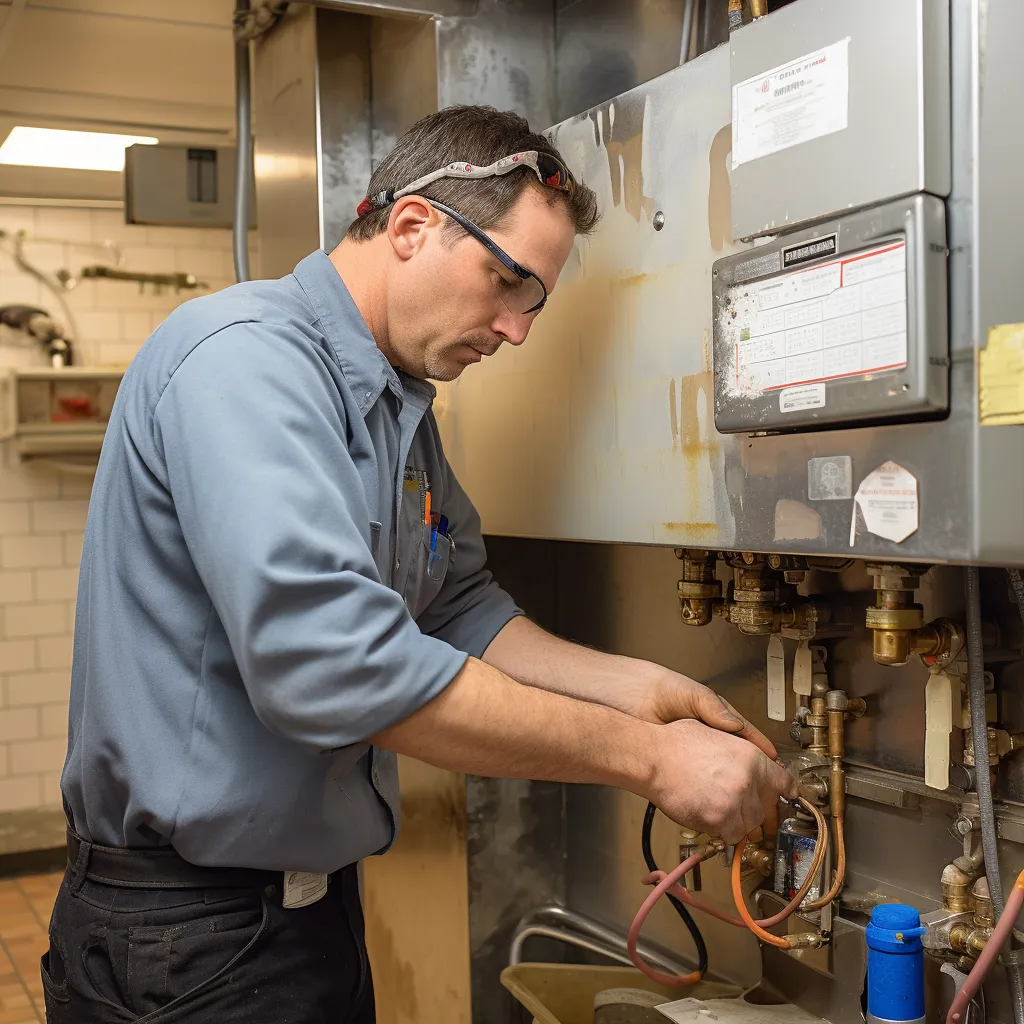
Are gas water heaters energy-efficient?
Gas water heaters are known for their cost-effectiveness and energy efficiency compared to electric models. They operate by burning natural gas to heat the water, consuming less energy than their electric counterparts. The energy efficiency of a gas water heater may vary depending on factors like the size and model of the unit, as well as how well it is maintained. However, overall, gas water heaters tend to be more efficient in heating water and can help save on energy costs in the long run. So, when considering a water heater replacement in Rancho Cucamonga, it's worth considering a gas-based option for its cost-effectiveness and energy efficiency.
Cost to purchase and install an electric water heaters
The total expenses for buying and installing electric water heaters can vary depending on several factors. These factors include the type and size of the water heater, the brand, any additional features, and the complexity of the installation process. On average, the cost of an electric water heater can range from $500 to $1,500 or more. This price includes the purchase of the unit itself. However, keep in mind that higher-priced models often come with more advanced features and longer warranties. When it comes to installation, the cost can vary as well. The installation cost typically includes the labor charges for a professional plumber. In general, the installation of an electric water heater can range from $200 to $600, depending on factors such as the complexity of the installation, any required modifications to the existing plumbing system, and the location of the water heater. To get a more accurate estimate for your specific situation, it is recommended to consult with a professional plumber or contact local plumbing companies for quotes. They will be able to assess your needs and provide you with a more detailed breakdown of the costs associated with buying and installing an electric water heater.

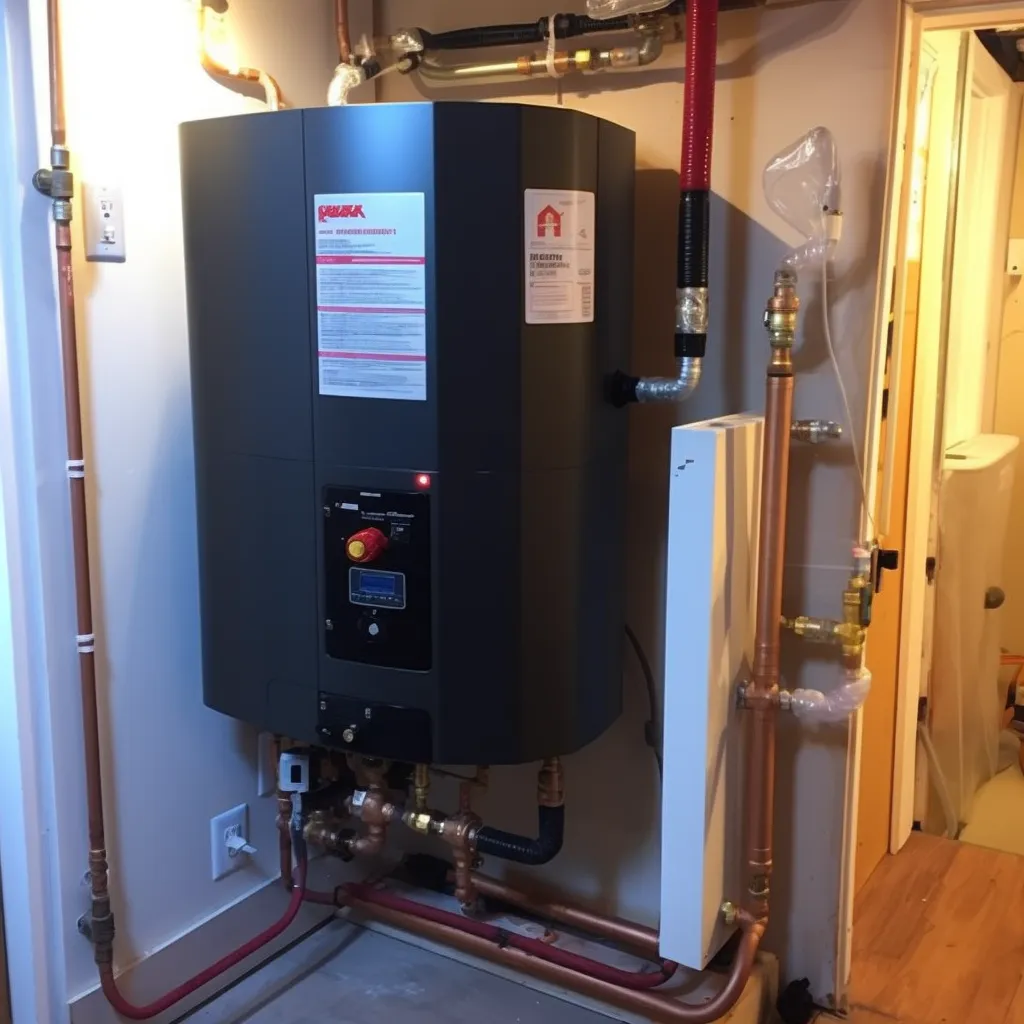
Cost to purchase and install a gas water heaters
When it comes to the purchase and installation of gas water heaters, the cost can vary depending on various factors such as the brand, capacity, and complexity of the installation. On average, the cost of gas water heaters can range from $500 to $1,500. However, it is essential to note that this price range only covers the unit itself. In addition to the cost of the water heater, you will also need to consider the installation expenses. The installation cost typically includes labor charges, the necessary materials, such as pipes and fittings, and any additional work required, such as venting modifications. The installation of a gas water heater is best left to a professional plumber or heating contractor to ensure proper installation and compliance with local building codes. The installation cost can range from $500 to $2000 or more, depending on the complexity of the project. When considering the purchase and installation of gas water heaters, it is crucial to consult with a reputable plumbing professional to get an accurate estimate of the total cost. They will assess your specific requirements and provide you with an estimate that suits your needs and budget.
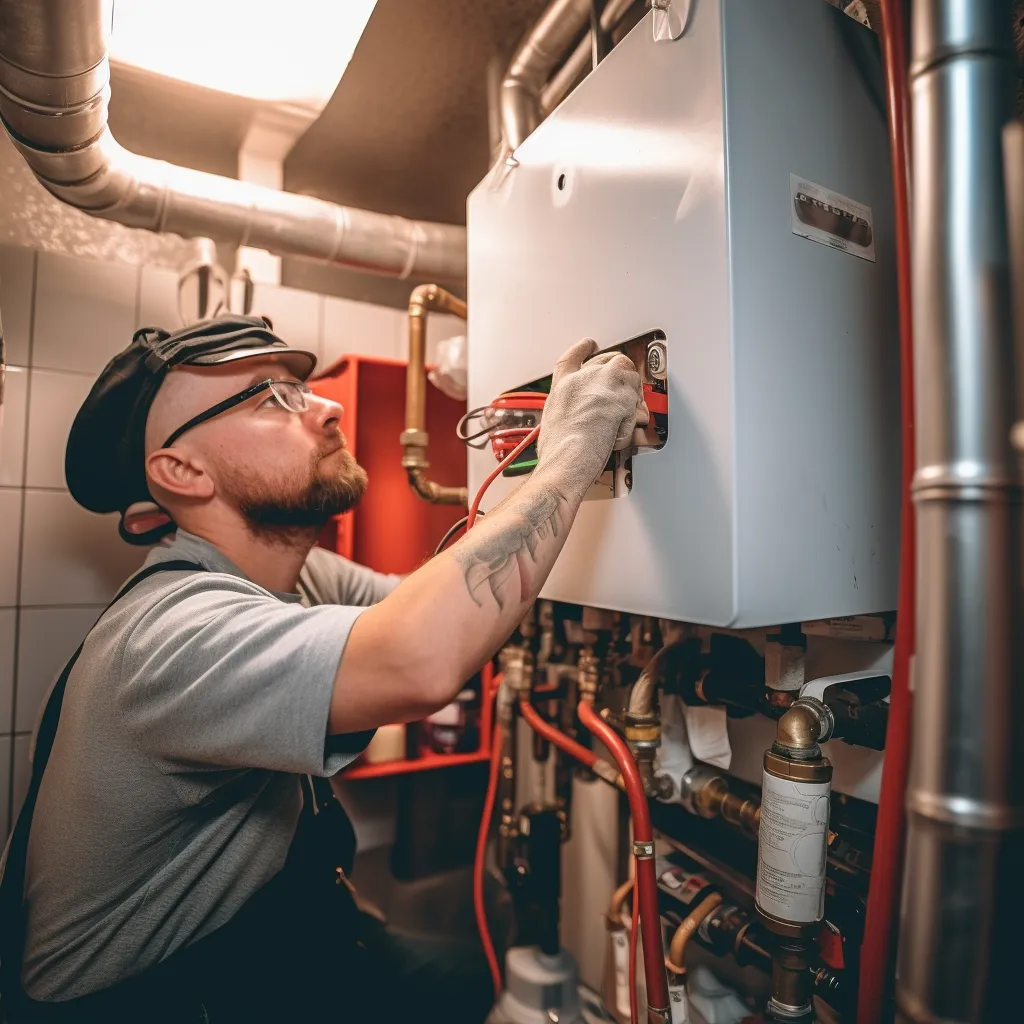
Electric water heater maintenance requirements
Regular maintenance is crucial to ensure the efficient and reliable operation of electric water heaters. By taking proper care of your unit, you can extend its lifespan and avoid unexpected breakdowns. Here are some essential maintenance tasks for electric water heaters:
Flushing the tank: Sediment buildup can reduce the efficiency of your water heater over time. It's recommended to flush the tank at least once a year to remove any accumulated sediment. Simply turn off the unit's power supply, attach a hose to the drain valve, and let the water flow out until it runs clear.
Checking the sacrificial anode rod: The anode rod is an essential component that helps prevent corrosion inside the tank. Inspect the rod annually and replace it if it is heavily corroded, as a deteriorated anode rod may lead to tank failure. Remember to turn off the power and water supply before removing the anode rod.
Testing the temperature and pressure relief valve: This safety valve is designed to release excess pressure and prevent tank explosions. Lift the lever on the valve and allow some water to drain out. If the valve doesn't operate correctly, it should be replaced immediately.
Inspecting electrical connections: Check the wiring, terminals, and electrical connections for signs of damage, such as loose wires or corrosion. Make sure all connections are secure and undamaged. Faulty electrical connections can lead to safety hazards or malfunctioning of the water heater.
Insulating the tank and pipes: Insulating your electric water heater and the associated hot water pipes can minimize heat loss and reduce energy consumption. Use insulation blankets specifically designed for water heaters and pipe insulation to improve efficiency and save on energy bills.

Gas water heater
maintenance requirements
Gas water heaters require regular maintenance to ensure optimal performance and extend their lifespan. Here are some essential maintenance needs to consider for gas water heaters:
Inspect the Flue: The flue is responsible for venting out the harmful gases produced during the combustion process. Regularly inspect it for any blockages or leaks to prevent carbon monoxide buildup. Ensure that the flue is securely connected and operating efficiently.
Check the Pilot Light: The pilot light should always be burning blue and steady. If it's flickering, yellow, or goes out frequently, it may indicate a problem with the heater. Adjust the pilot light according to the manufacturer's instructions to maintain proper combustion.
Flush Out Sediment: Over time, sediment, minerals, and debris can accumulate at the bottom of the water tank, reducing efficiency and causing corrosion. To prevent this, drain and flush out the tank annually to remove any built-up sediment. Follow the manufacturer's guidelines for proper flushing procedures.
Test the Temperature and Pressure Relief Valve (T&P Valve): The T&P valve is a safety feature that releases excess pressure or temperature inside the tank. Test this valve periodically to ensure it's functioning correctly. If it fails to operate correctly, it should be replaced immediately by a professional.
Check the Gas Connection: Visually inspect the gas connection for any leaks or loose fittings regularly. Apply a solution of soapy water to the gas line connections and check for any bubbles, which indicate a gas leak. If a gas leak is detected, turn off the gas supply and consult a qualified technician.
Insulate Water Pipes: Consider insulating hot water pipes to minimize heat loss and reduce energy usage. This helps maintain hot water temperatures and ensures more efficient operation.
Annual Professional Inspection: It's recommended to have an annual inspection performed by a licensed professional. They can evaluate the overall condition of the gas water heater, identify any potential issues, and perform necessary maintenance or repairs.
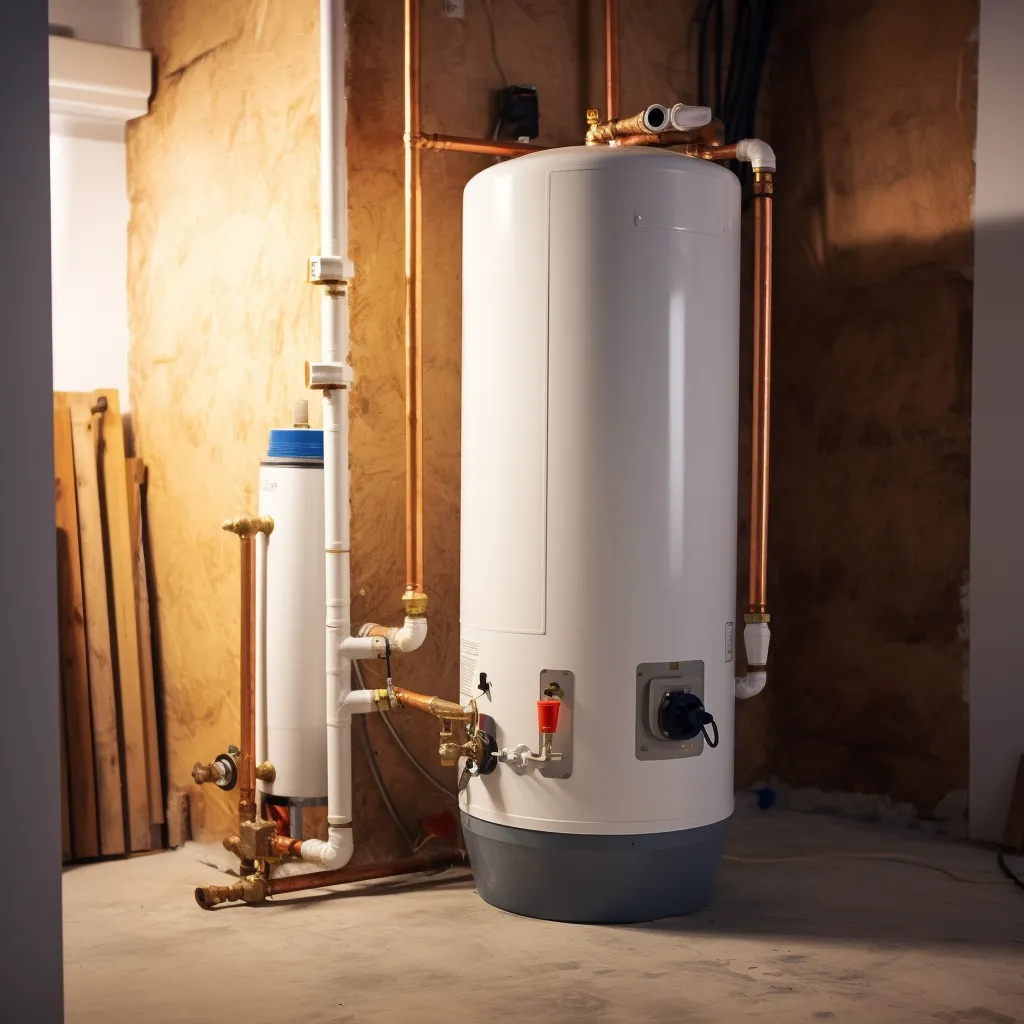
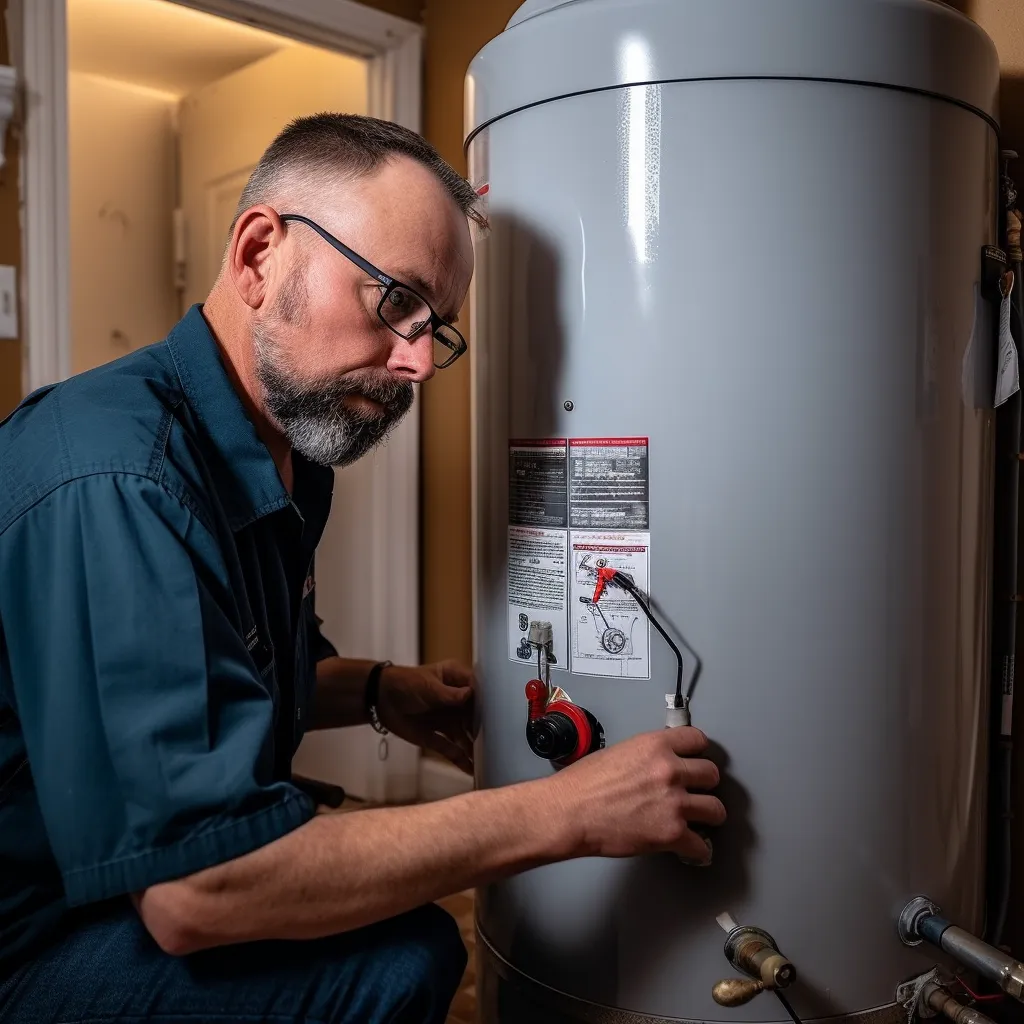
Electric water heaters: safety considerations
When it comes to electric water heaters, safety should be the top priority. Here are some important safety considerations to keep in mind:
Shut off the power: Before starting any work on an electric water heater, always turn off the power supply at the circuit breaker or fuse box. This will prevent the risk of electrical shock or other accidents while working on the unit.
Drain the tank: Before removing the old water heater, it's essential to drain the tank completely. This will minimize the risk of scalding from hot water and prevent water damage during the replacement process.
Use the right tools and equipment: When replacing an electric water heater, ensure you have the necessary tools and equipment, such as insulated gloves, a voltage detector, and wrenches. This will help protect you from potential electrical hazards and ensure a smooth installation.
Inspect the wiring: Before connecting the new water heater, thoroughly inspect the electrical wiring for any signs of damage, fraying, or loose connections. If you notice any issues, it's important to address them before proceeding with the replacement.
Size and capacity: When choosing a new electric water heater, make sure to select the appropriate size and capacity based on your household's needs. Installing an undersized water heater can lead to issues like insufficient hot water supply or increased energy consumption.
Proper ventilation: Electric water heaters require proper ventilation to prevent the build-up of combustion gases. Ensure that the replacement unit has adequate ventilation and follows local building codes to ensure safe operation.
Proper installation: If you're not confident in your ability to install the water heater correctly, it's best to hire a professional plumber or electrician who is experienced in water heater replacement. They will ensure proper installation and adherence to safety codes and regulations.

Gas water heaters: safety considerations
When it comes to the safety considerations of gas water heaters, there are a few important factors to keep in mind.
Handle gas appliances with caution and follow all necessary precautions to ensure your safety. One of the primary concerns with gas water heaters is the potential for gas leaks. Natural gas is odorless and colorless, which makes it difficult to detect leaks without additional safety measures. This is why most gas companies add a distinctive odorant to help identify gas leaks. It is important to be aware of the signs of a gas leak, such as a strong sulfur or rotten egg smell, hissing sounds near the gas lines, or vegetation around the gas line suddenly wilting or dying.
In addition to gas leaks, another safety consideration is the risk of carbon monoxide poisoning. Gas water heaters produce carbon monoxide as a byproduct of combustion. Proper ventilation is essential to prevent the buildup of carbon monoxide in indoor spaces. It is crucial to ensure that your gas water heater is installed correctly and meets all ventilation requirements.
Regular maintenance and inspection of the unit are also recommended to ensure its safe operation.
Another safety consideration when it comes to gas water heaters is the risk of fires or explosions. This risk can be minimized by following proper installation guidelines, ensuring proper clearance around the unit, and avoiding storing flammable materials near the water heater.
When it comes to gas water heater replacement, it is essential to hire a professional and licensed technician who can handle the job safely and correctly. They will have the necessary expertise and knowledge to install the new water heater and ensure all safety considerations are met.

How to choose between electric vs gas water heater
Making an informed decision about the type of water heater that best suits your needs involves carefully considering a number of factors. By taking these factors into account, you can ensure that you choose a water heater that is both efficient and cost-effective.
Consideration the size of your household as well as the frequency of hot water usage. By doing so, you can ensure that your hot water needs are met efficiently and effectively. The size of your household plays a significant role in determining the capacity of your hot water system. A larger household with more members will typically require a system with a higher capacity to accommodate the increased demand for hot water. On the other hand, a smaller household may be adequately served by a system with a lower capacity. Moreover, it is important to consider the frequency of hot water usage in your household. Some households have individuals who frequently use hot water, such as those who take multiple showers throughout the day, while others may have lower hot water demands. By assessing the frequency of hot water usage, you can better gauge the capacity needed for your hot water system.
With the initial purchase and installation costs, gas water heaters may come with a higher upfront price tag, whereas electric water heaters have lower initial expenses. However, it's crucial to note that gas heaters often offer long-term cost savings. Ultimately, the decision should be based on your specific requirements and budget considerations.
Gas water heaters take the lead in terms of energy-saving and cost-effectiveness compared to their electric counterparts.
When it comes to maintenance, there is a clear distinction between electric water heaters and gas heaters. Electric water heaters are known for their low maintenance requirements. They do not require frequent inspections or intricate upkeep. On the other hand, gas heaters demand regular inspections to guarantee safety and avoid any potential malfunctions. Keeping up with inspections is crucial to ensure the proper functioning of a gas heater and to safeguard against any potential hazards that may arise.
Electric water heaters are a more environmentally friendly option when it comes to their impact on the environment. These water heaters generate fewer emissions and leave a smaller carbon footprint in comparison to their gas-powered counterparts. By choosing electric water heaters, you can contribute to reducing the harmful greenhouse gas emissions that contribute to climate change. Additionally, electric water heaters help to conserve natural resources and promote a cleaner and healthier environment for future generations. Making the switch to electric water heaters is a simple yet impactful step towards minimizing our environmental impact and embracing a more sustainable lifestyle.
By taking these factors into account, you can make an informed decision about the most suitable type of water heater for your specific needs. Whether you are looking to upgrade your existing unit or simply replace an old one, considering these factors will ensure that you choose the right water heater for optimal performance and efficiency.
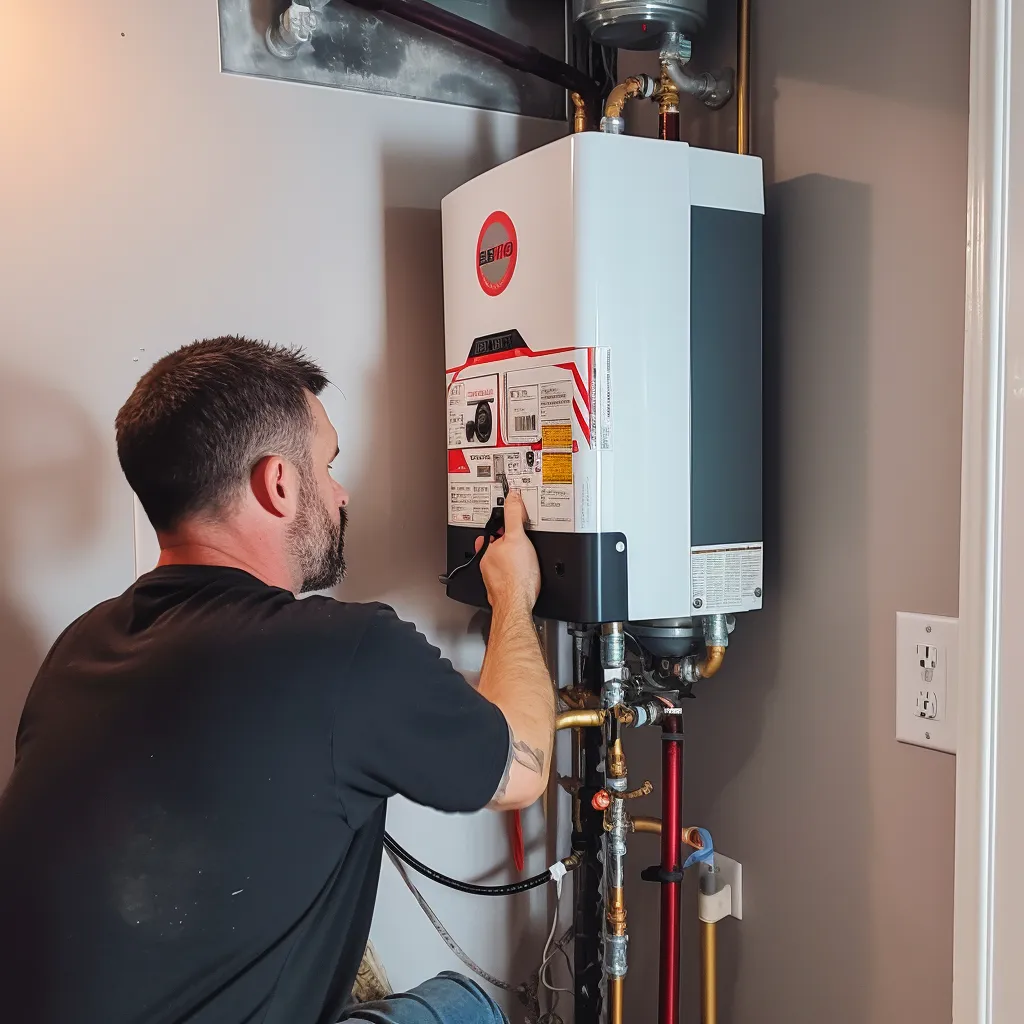
Why you should hire a licensed professional to install your water heater
If you find yourself in need of a water heater replacement, it's important to consider hiring a licensed professional to handle the installation. While it may be tempting to save money by attempting a DIY project or hiring an unlicensed handyman, there are several compelling reasons why it's worth investing in a professional for this task.
A licensed professional will have the knowledge and expertise to ensure that your water heater is installed correctly and in compliance with all relevant codes and safety standards. Improper installation can lead to a range of issues, including leaks, unreliable performance, and even potential safety hazards.
Hiring a licensed professional provides an added layer of protection for both you and your property. If anything goes wrong during the installation process and damages occur, a licensed professional will typically be insured, ensuring that you are not left to cover the costs yourself.
A licensed professional will have access to the necessary tools and equipment required for a successful water heater installation. They will also have the skills and experience to troubleshoot any complications that may arise during the process.
By hiring a licensed professional, you can save yourself valuable time and effort. Installing a water heater involves a series of steps, including draining and disconnecting the old unit, connecting the new unit to the plumbing and electrical systems, and ensuring proper ventilation. A professional will have the efficiency and know-how to complete this process quickly and effectively, taking the burden off your shoulders.
When it comes to warranties, opting for a licensed professional is essential. Many manufacturers require professional installation to validate the warranty on the water heater. By hiring a licensed professional, you can rest assured that your warranty will be intact, providing you with coverage and peace of mind for years to come.
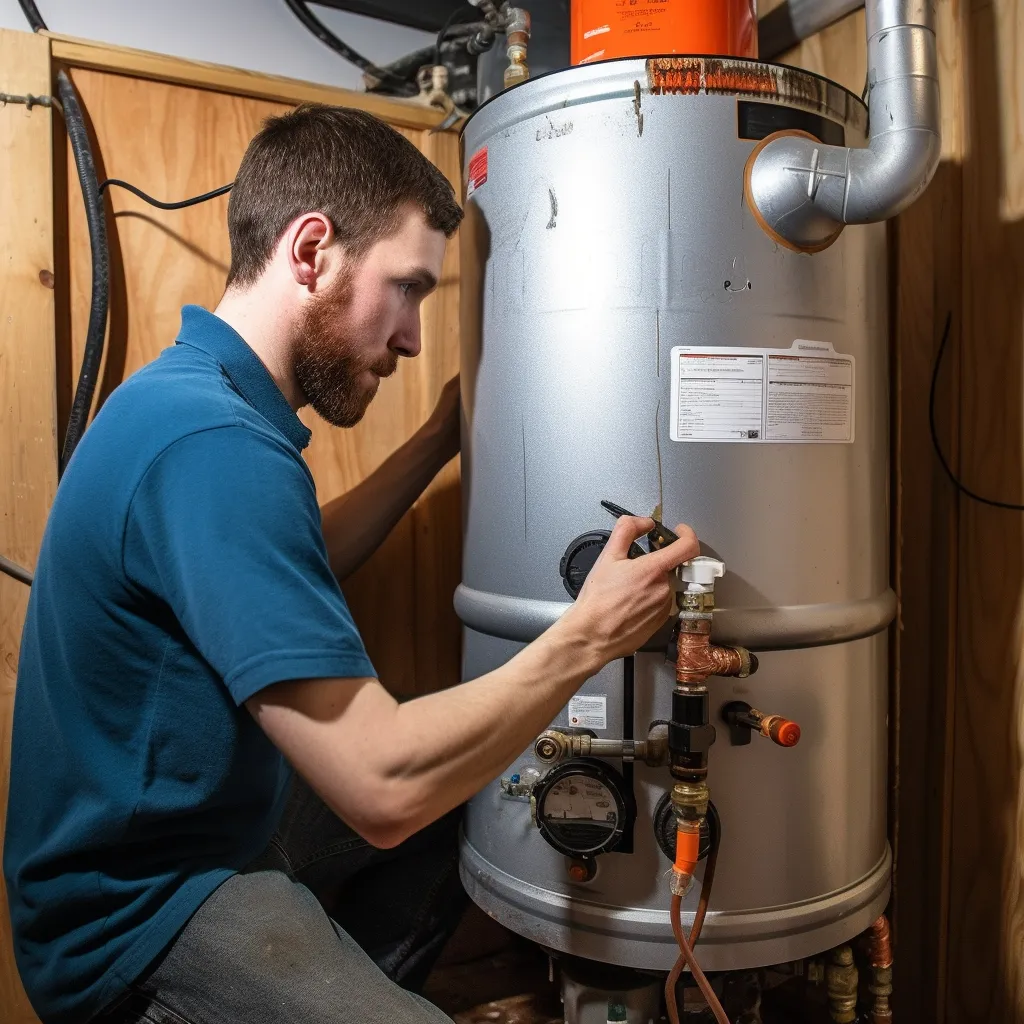
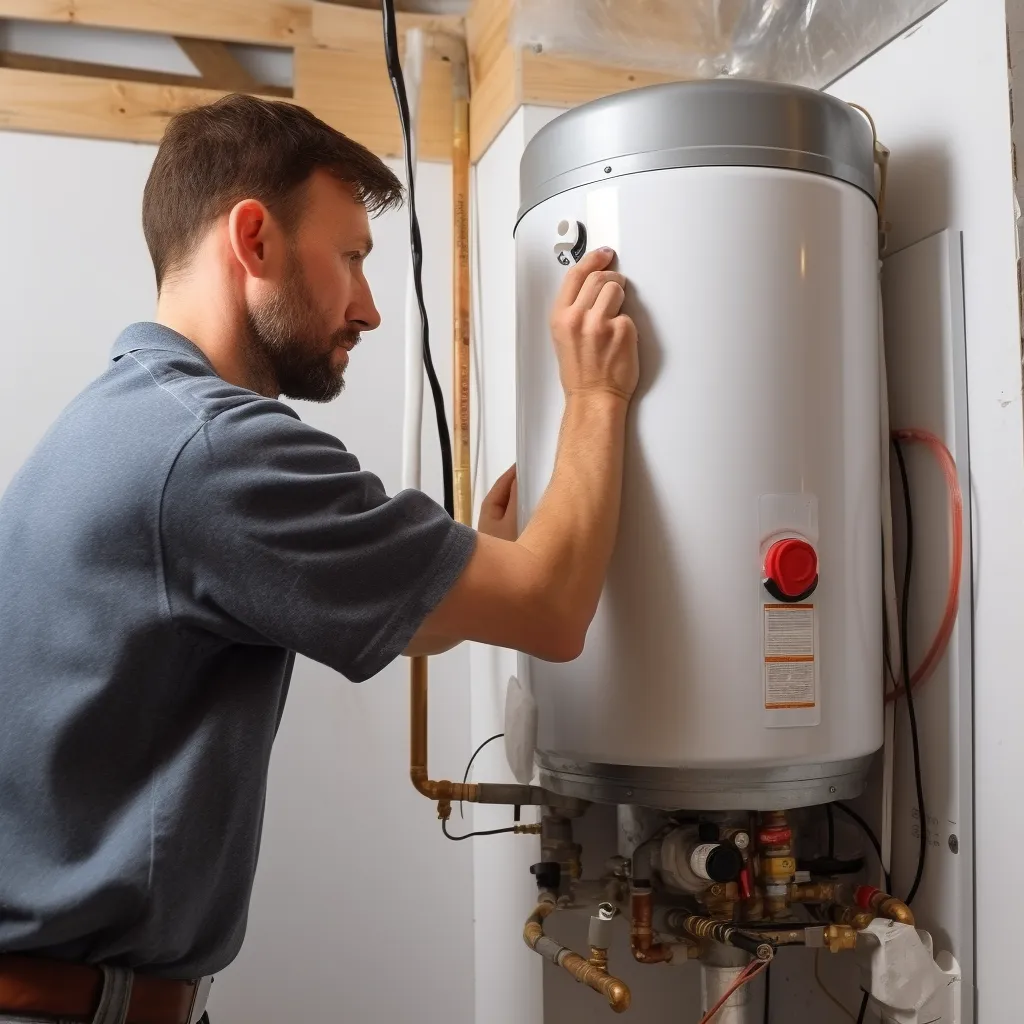
Be sure to do your thorough research
Thorough research is crucial in order to make the right water heater choice. You should carefully consider the pros and cons of both electric and gas models. Safety considerations and installation requirements are also important factors to keep in mind. By conducting proper research and thoughtful planning, you can find the perfect water heater to suit your needs. However, it cannot be stressed enough how essential it is to hire a licensed professional for the installation process. Their expertise will ensure not only the proper installation of your water heater, but also its safe and efficient operation. Choosing the right water heater replacement in Rancho Cucamonga requires careful consideration of various factors, such as the type of model, safety considerations, and installation requirements. Hiring a licensed professional for installation is crucial for the safe and efficient operation of your new water heater.
Contact Us
One of the most significant investments you can make in your home is a water heater replacement.
GET IN FULL TOUCH
PHONE: (909) 639-6526
EMAIL:
rick@waterheaterranchocucamonga.com
Rancho Cucamonga CA 91701